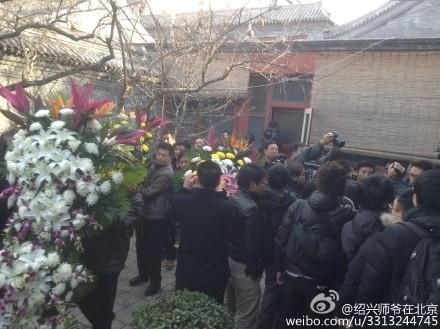Jan. 17 marked the 10th year of the anniversary of the death of former Chinese Communist Party general secretary Zhao Ziyang, a Party leader who was crucial for shepherding China out of Mao Zedong’s disastrous economic policies, and who broke ranks with other leaders to sympathize with protesting students during the 1989 democracy movement.
Hundreds of citizens visited Zhao’s former residence in Beijing to memorialize him recently, including several retired senior politicians. The old Zhao family residence was filled with flower baskets and poems of mourning written by the public.
Zhao is most well known for becoming a scapegoat during the Party’s power struggles around the Tiananmen Square massacre in 1989, and was eventually ousted by paramount leader Deng Xiaoping. After being ousted, he was placed under house arrest, where he remained until he died of a stroke in Beijing in 2005.




